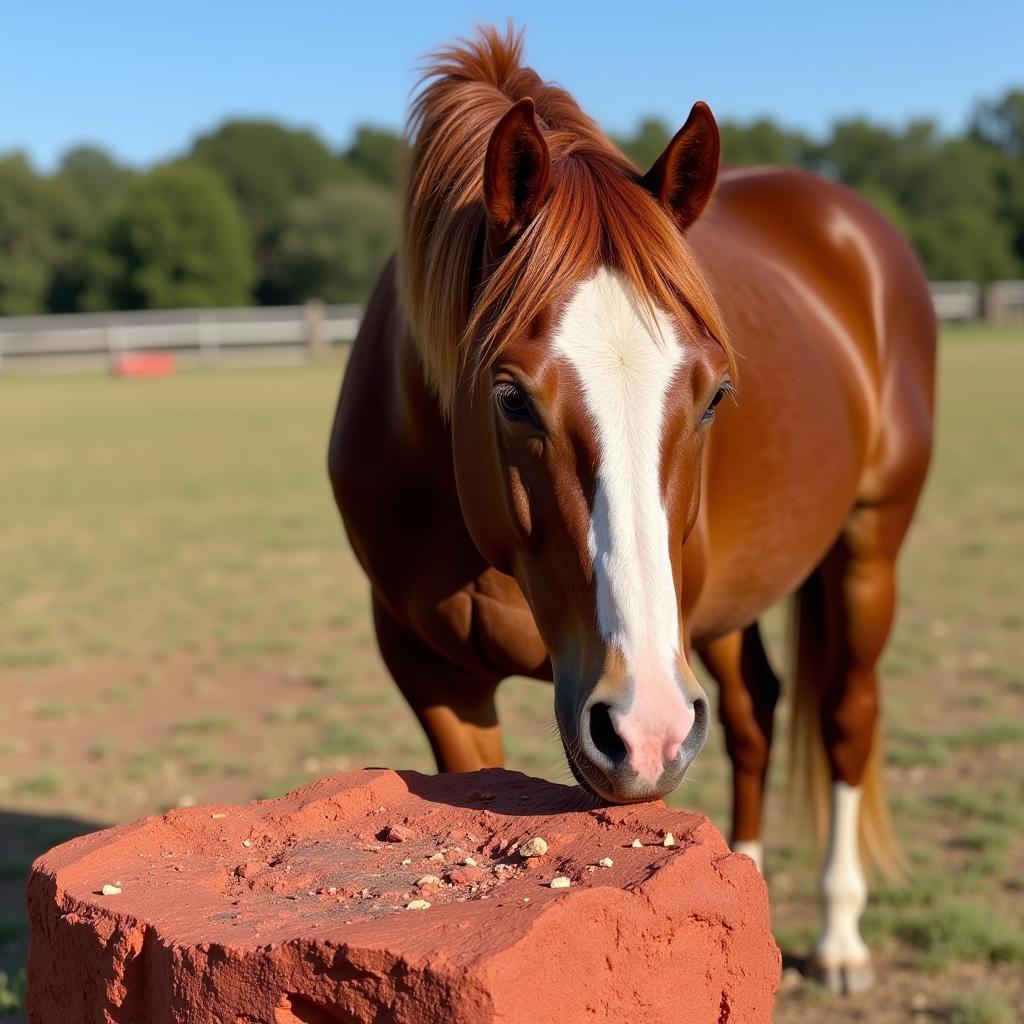Horse owners understand the importance of providing their equine companions with a balanced and nutritious diet. While hay and pasture make up the foundation of a horse’s diet, supplements often play a vital role in addressing specific needs. One such supplement gaining popularity is the Horse Blocker. But what exactly is a horse blocker and why should you consider adding it to your horse’s feeding regimen?
What is a Horse Blocker?
A horse blocker, sometimes referred to as a mineral blocker or a salt lick, is a solid block of essential minerals and nutrients designed to supplement a horse’s diet. These blocks are typically made from compressed salt, which acts as a carrier for other vital minerals such as calcium, phosphorus, magnesium, and trace minerals like copper and zinc.
Why are Horse Blockers Important?
Horses, like all animals, require a specific balance of minerals in their diet for optimal health and performance. Deficiencies in certain minerals can lead to a range of health issues, from poor coat condition and hoof problems to more serious conditions like anemia and muscle weakness.
 Horse Licking a Mineral Block
Horse Licking a Mineral Block
Pasture and hay alone often fall short of providing adequate amounts of all the necessary minerals, especially in areas with depleted soils. This is where horse blockers come in. By offering a readily available source of essential minerals, horse blockers help bridge the nutritional gap and ensure that your horse receives the nutrients it needs to thrive.
Benefits of Using Horse Blockers
The benefits of using horse blockers extend beyond simply supplementing your horse’s diet. Here are some key advantages:
- Convenient and easy to use: Horse blockers are incredibly convenient. Simply place one in your horse’s stall, pasture, or paddock, and they will lick it as needed.
- Cost-effective: Compared to other forms of mineral supplementation, horse blockers offer a relatively cost-effective solution, especially considering their long lifespan.
- Promotes natural foraging behavior: Licking a block mimics a horse’s natural grazing behavior and can help alleviate boredom.
Choosing the Right Horse Blocker
Not all horse blockers are created equal. The best type of blocker for your horse will depend on various factors, including:
- Age and breed: Different breeds and life stages have varying mineral requirements.
- Activity level: Horses used for work or intense exercise may require higher levels of certain minerals.
- Geographic location: Soil composition varies geographically, impacting the mineral content of forage.
Consult with your veterinarian or an equine nutritionist to determine the most appropriate horse blocker for your horse’s individual needs. They can assess your horse’s diet, lifestyle, and any potential deficiencies to recommend the best option.
Integrating Horse Blockers into Your Feeding Program
When introducing a horse blocker, it’s essential to do so gradually. Start by offering the block alongside your horse’s regular feed and hay. Once your horse is accustomed to the taste and texture, you can leave the block out free-choice.
Monitor your horse’s intake and adjust the placement or type of block as needed. If you notice your horse consuming the block excessively or neglecting its other food sources, consult with your veterinarian.
Conclusion
Providing your horse with a balanced and nutritious diet is essential for its overall health and well-being. Horse blockers offer a convenient, cost-effective, and natural way to supplement your horse’s mineral intake, ensuring they receive the essential nutrients needed to thrive.
By choosing the right horse blocker and integrating it appropriately into your feeding program, you can support your horse’s health, performance, and overall vitality.
FAQs About Horse Blockers
Q: Can I give a horse blocker to my pregnant mare?
A: Yes, but it’s crucial to choose a blocker specifically formulated for pregnant and lactating mares to meet their increased mineral demands.
Q: How long does a horse blocker typically last?
A: The lifespan of a horse blocker varies depending on factors like weather conditions and the number of horses sharing it. On average, a block can last several weeks to a few months.
Q: What should I do if my horse isn’t licking the block?
A: There could be several reasons why your horse isn’t interested in the block, such as taste preferences or an underlying health issue. Try offering a different flavor or consult with your veterinarian to rule out any medical concerns.
Need More Help with Your Horse’s Nutrition?
Choosing the right supplements for your horse can be overwhelming. For personalized advice and recommendations tailored to your horse’s specific needs, contact our team at Justus Horses USA. We’re here to help you make informed decisions to support your equine partner’s health and happiness.
Call us today at 0772127271, email us at [email protected], or visit our office located at QGM2+WX2, Vị Trung, Vị Thuỷ, Hậu Giang, Việt Nam. Our dedicated team of horse experts is available 24/7 to answer your questions and provide guidance.
For more insights on gastric supplements for horses and the best ulcer supplement for horses, explore our comprehensive resources on the Justus Horses USA website.